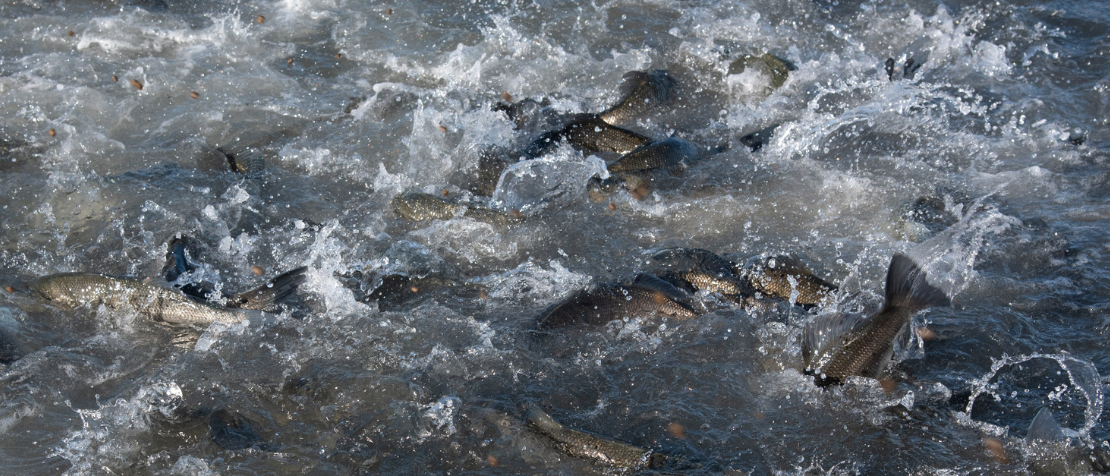Just keep swimming: FAO works to mitigate climate change on inland aquatic resources and fisheries in Europe

©FAO/Victor Sokolowicz
Inland capture fisheries play a vital role in supporting households, economies and cultures across Europe, through both commercial and recreational fishing. According to capture and landing statistics reported to the Food and Agriculture Organization of the United Nations (FAO), the total production from inland capture fisheries in Europe reached 167 187 tonnes in 2021, accounting for 1.5 percent of total global production, making this sector highly important for the region.
Yet, climate change poses several challenges to the survival of fish species across Europe. It creates significant and often unpredictable impacts on inland fisheries, and it can be an exacerbating factor for other stressors. Foreseeably, this will lead to shifts in freshwater habitats which are mainly expected to be unfavourable for inland fisheries.
For this reason, the European Inland Fisheries and Aquaculture Advisory Commission (EIFAAC) – the regional fishery body of the Food and Agriculture Organization of the United Nations (FAO) – is organizing a workshop, “on the problems and challenges of climate change, and its impact on inland aquatic resources and fisheries of Europe,” today in a virtual format, aimed at providing a platform for sharing key research outcomes. The workshop is bringing together leading scientists from across Europe and North America, from government bodies, research institutes and universities, who will present their most recent works on the evolving impacts of climate change on inland fisheries; how freshwater ecosystems respond to environmental shifts; ways of adapting fish monitoring programmes to a changing climate; and finding innovative solutions to sustainably manage fisheries. The discussions will offer valuable insights for practitioners, policymakers, and fisheries managers, emphasizing innovative and practical adaptation strategies.
In recent years, though an increasing number of scientific studies and projects have examined the effect of a changing climate on inland aquatic resources, substantial research gaps remain, particularly about the ability of species to adapt to higher temperatures and the associated environmental pressures. Blending knowledge and research findings in this area to answer these questions is crucial to identify these potential impacts on Europe’s inland aquatic fisheries.
“Understanding and addressing research gaps in scientific discussions about the acclimatization of aquatic species to rising temperatures is essential to grasp the full impact of climate change on inland fisheries in Europe,” said Raymon VanAnrooy, FAO Senior Fishery Officer and EIFAAC Secretary. “It is then that we are able to find the best and most viable approach to combat these degrading effects.”
EIFAAC approaches the issue of mitigating the effects of climate change and increasing the resilience of aquaculture from several angles. Plans and recommendations in this area include reducing the uncertainty of inland aquatic resources’ response to climate change by developing interactive tools, such as vulnerability maps, while the development of other tools and guidance tables to address adaptation strategies is being explored. Additionally, the Commission emphasizes the importance of sharing research results on best practices related to adaptation strategies for inland aquatic resources and fisheries.
About the European Inland Fisheries and Aquaculture Advisory Commission (EIFAAC)
Established in 1957, EIFAAC is set to promote the sustainable development, conservation, restoration, utilization and responsible management of European inland fisheries and aquaculture, in line with the FAO Code of Conduct for Responsible Fisheries and other relevant international instruments.
EIFAAC brings together experts from different parts of the world and from various institutes and organizations to create important synergies that are necessary to develop guidelines supporting member states in addressing the challenges in inland aquatic resources and fisheries caused by a changing climate, and to foster a coordinated expert network in Europe.
Inland capture fisheries are significant to a sizeable portion of the European population and, accordingly, need to be treated as a priority.
European Inland Fisheries and Aquaculture Advisory Commission (EIFAAC)
Publication: Status and trends of inland fisheries in Europe
